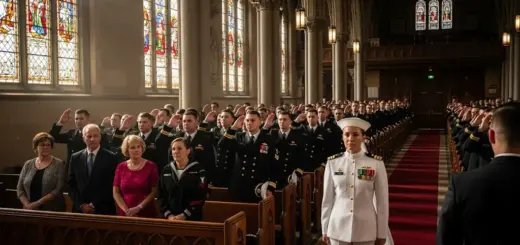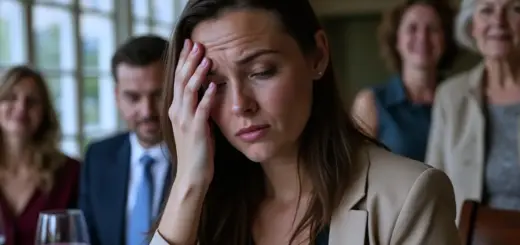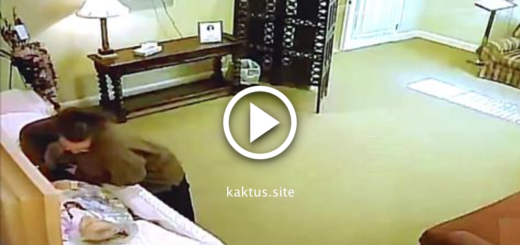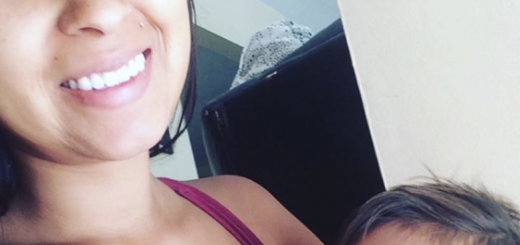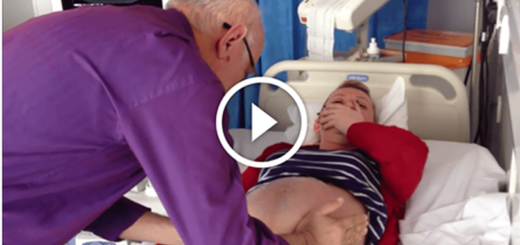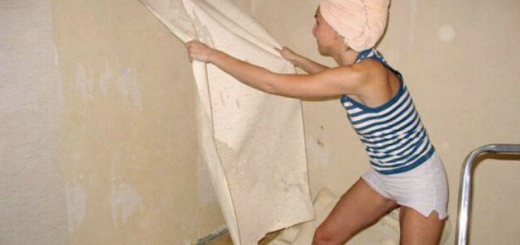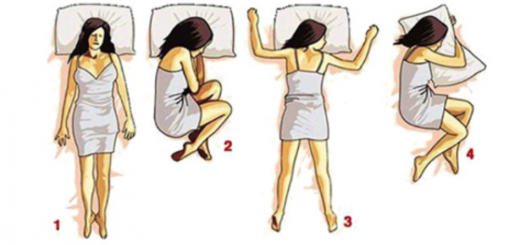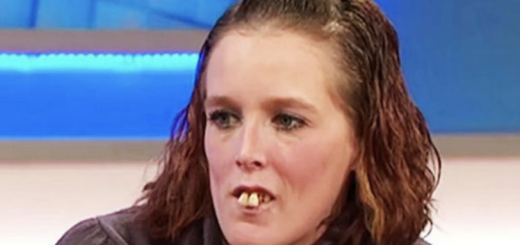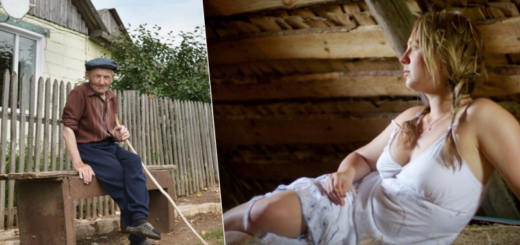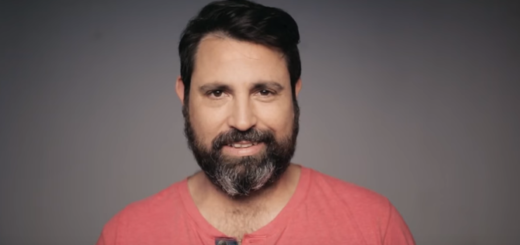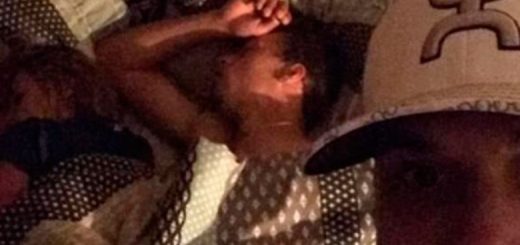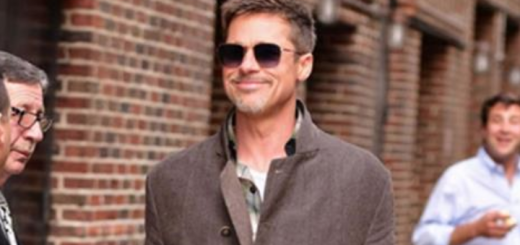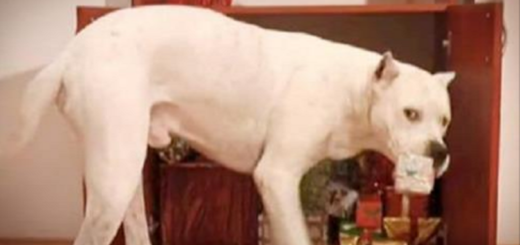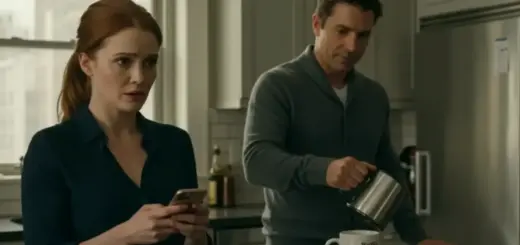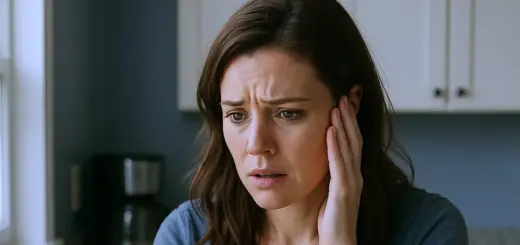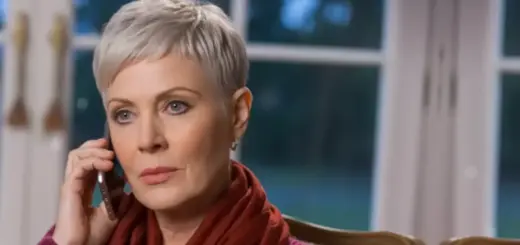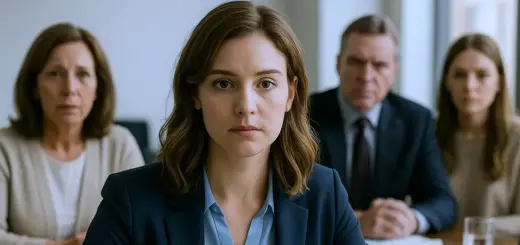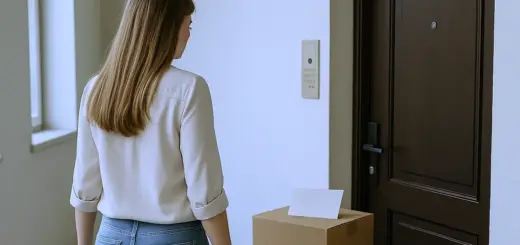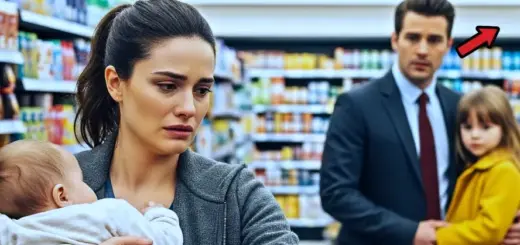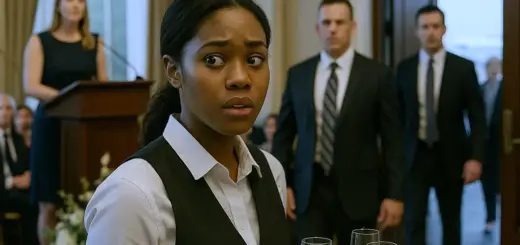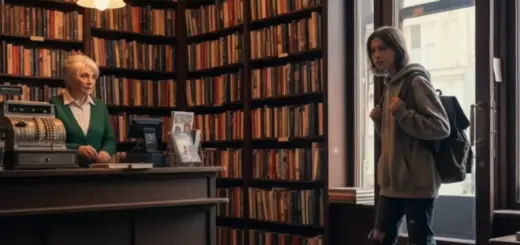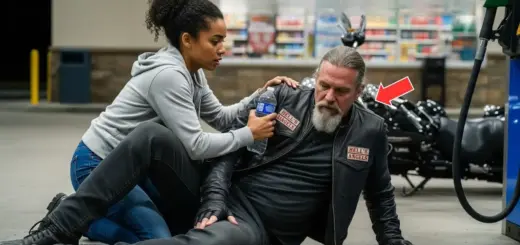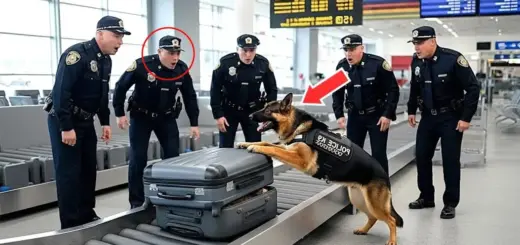My name is Alyssa Dunn, and I’m 26 years old. For three years, I’ve been raising my sister’s four kids as if they were my own. My bakery business crashed, leaving me broke, so I moved in with her to start over. Instead of rebuilding my life, I became her unpaid nanny, cooking, driving, and parenting while she worked nights and barely showed up.

I juggled a part-time coffee shop job and late-night graphic design classes, chasing a dream that felt further away every day. Then, one night, she dropped a bombshell: “I’m pregnant again. Fifth kid.” My stomach twisted. I’d given up everything—my savings, my goals, my freedom—and now another baby? I was done.
“I can’t keep doing this,” I snapped, my voice shaking as I stormed to my room. Her face hardened, like I’d betrayed her. I decided right then to move out and finally live for myself. But she didn’t let it go easily. Her reaction was explosive, and things spiraled fast, turning our family upside down.
Every day with my sister’s kids felt like a never-ending battle. I woke up to chaos, my alarm blaring at 5:30 a.m. as I dragged myself out of bed to get the kids ready. The oldest, Logan, 15, was already arguing with his sister Ellie, 12, about who got the last Pop-Tart.
“You ate mine yesterday!” Ellie shouted, slamming the cupboard. I stepped in, splitting the pastry in half while Hunter, 9, spilled orange juice on the counter. Nora, 6, clung to my leg, begging for braids before school. I barely had time to gulp cold coffee before piling them into the car.
The drive to school was a circus—Logan blasting music, Ellie complaining about math, Hunter asking random questions about dinosaurs, and Nora singing off-key. By the time I dropped them off, my head was pounding. I rushed to the coffee shop for my six-hour shift, steaming milk and forcing smiles for cranky customers.
“Can you make it quick?” a guy in a suit barked, as if I wasn’t already juggling three orders. I earned $15 an hour, barely enough to cover my phone bill and gas. After work, I picked up the kids, helped with homework, and cooked spaghetti while breaking up another fight—this time over whose turn it was to feed the dog.
My sister, Cheryl, worked night shifts at the supermarket with her boyfriend, Blake, so she was either sleeping or gone. I’d catch her for maybe ten minutes a day when she’d mumble, “Thanks for holding it together,” before crashing on the couch. Nights were my only escape.
After tucking Nora in and checking Ellie’s algebra, I opened my laptop for graphic design classes. I’d always loved creating logos, dreaming of my own studio, but staring at Photoshop tutorials at midnight felt like chasing a ghost. My eyes burned from exhaustion, and I’d nod off mid-lesson, waking to a dead battery.
One night, Ellie crept in, asking, “Why do you look so tired?”
“Just trying to keep up,” I said, forcing a smile.
She hugged me, and for a second, I felt needed. But then I caught myself—needed for what? Changing diapers, driving carpools, wiping tears? This wasn’t my family.
I started noticing how much I was carrying. Logan needed rides to soccer practice, and Ellie had dance recitals I couldn’t miss. Hunter’s science project was due, and Nora’s asthma meant constant trips to the pharmacy. I was spending my savings—$3,000 from my failed bakery—on their school supplies and doctor visits.
Cheryl pitched in sometimes, but her money went to rent and groceries. Blake, who worked the same shifts, never offered a dime. “You’re so good with them,” Cheryl would say, like it was a compliment, but it wasn’t. It was a trap.
I was living her life, not mine. One evening, I called my best friend, Tara, to vent. “I’m drowning,” I told her, pacing the kitchen while the kids watched TV.
Tara, who ran her own graphic design gigs, didn’t sugarcoat it. “You’re not their mom, Alyssa. You can’t keep putting your dreams on hold.”
Her words hit hard. I looked at my laptop, open to a half-finished logo project, and realized I hadn’t submitted anything in weeks. My professors were emailing about missed deadlines, and I was falling behind.
The kids weren’t the problem. I loved their chaos, their quirks—Logan’s sarcastic jokes, Ellie’s shy smiles, Hunter’s endless questions, Nora’s clingy hugs. They were family. But I wasn’t their parent—Cheryl was, and she was barely there.
Blake acted like the kids were my responsibility, too. I’d overhear him joking with Cheryl about “teamwork,” but their teamwork meant me doing everything. I started calculating: ten hours a day on the kids, six at work, three on school. That left maybe five for sleep if I was lucky.
My dream of designing full-time, of building something for myself, was slipping away. One night, after Nora cried herself to sleep over a lost stuffed animal, I sat alone, staring at my sketchbook. I’d drawn nothing but stick figures for her lately, not the bold designs I used to create.
I closed it, my chest tight. I wasn’t just tired—I was disappearing. Every day I spent raising Cheryl’s kids was a day further from who I wanted to be.
I loved them, but I couldn’t keep sacrificing myself. Something had to change. A week later, I was folding laundry when Cheryl burst through the door, her face lit up with a grin I hadn’t seen in months.
Blake, her boyfriend, followed, carrying a pizza box and looking smug. “We’ve got news!” Cheryl said, her voice sharp with excitement. She grabbed my hand, pulling me to the couch. “I’m pregnant. Fifth kid, can you believe it?”
Blake nodded, tossing the pizza on the table like it was a celebration. My jaw tightened, but I forced a smile, muttering, “Wow, congrats.” Inside, I was reeling—another kid? I was already stretched thin, and they were acting like it was my job to cheer.
That night, over dinner, Cheryl dropped the real bomb. “We’ve been talking,” she said, glancing at Blake, who leaned back with a smirk. “You’re so good with the kids, Alyssa. We need you to step up more, maybe quit the coffee shop to focus on them full-time.”
I froze, fork halfway to my mouth. “Quit my job?” I repeated, my voice low.
“Yeah, we’re swamped at the supermarket,” Blake shrugged. “With the baby coming, we can’t handle everything.”
Cheryl chimed in. “Plus, we’re tight on cash. You could chip in $300 a month for rent. It’s only fair since you’re living here.”
My pulse raced. $300? I was barely scraping by, pouring my savings into their kids’ needs. I tried to stay calm. “I’m already doing everything—school runs, meals, homework. I can’t quit my job.”
Cheryl’s eyes narrowed. “You’re here, eating our food, using our space. You owe us.”
“It’s just temporary,” Blake added, his casual tone making my blood boil. “We’ll figure it out after the baby.”
Temporary? I’d been their crutch for three years. I pushed my plate away, standing up. “I need to think about this,” I said, walking out before I said something I’d regret.
The next day, I called Tara while the kids were at school. “They want me to quit my job and pay rent,” I said, my voice shaking with anger. “They’re acting like I’m their live-in maid.”
Tara didn’t hesitate. “They’re using you, Alyssa. You’re not their employee. What about your design classes? Your future?”
Her words stung, but they were true. I’d been so caught up in keeping their family afloat, I’d forgotten my own goals. I hung up, staring at my laptop where an unfinished logo project sat untouched.
Over the next few days, Cheryl and Blake kept pushing. “Think of the kids,” Cheryl said one morning, handing me a list of new chores—grocery runs, doctor appointments for Nora’s asthma, Logan’s soccer fees. Blake even suggested I sell my old bakery equipment to help out.
I wanted to scream. They weren’t asking for help; they were demanding I give up my life. I started noticing how they’d dodge responsibility—Cheryl sleeping through the kids’ arguments, leaving me to mediate, and Blake hanging out after work while I cooked dinner.
I was invisible to them, just a tool to make their lives easier. One evening, Logan caught me packing my laptop after a late study session. “You okay?” he asked, his usual sarcasm gone.
“I’m trying to be,” I said, hesitating. He nodded, like he understood more than I thought.
The kids weren’t blind; they saw how much I did. But Cheryl and Blake acted like it was my duty. I went to bed that night, my mind racing. I couldn’t keep this up—my savings were dwindling, my classes were slipping, and my dream of designing was fading.
I started checking rental listings online, my fingers trembling as I typed. Three hundred dollars a month? I’d rather spend it on a place of my own. I wasn’t their servant, and I was done letting them treat me like one.
The next evening, I was helping Ellie with her history homework when Cheryl stormed into the kitchen, arms crossed. “We need to talk,” she snapped, her voice cutting through the quiet.
“What’s up?” I asked, keeping my tone even.
“You’re not pulling your weight, Alyssa,” she said. “I asked you to step up, and you’re still working those coffee shop shifts. It’s irresponsible.”
My breath caught. Irresponsible? I’d been running her household for years. “I’m doing everything I can,” I said, my voice sharp. “I cook, clean, every day.”
Cheryl rolled her eyes. “That’s not enough. With the baby coming, we need you here, not chasing some hobby degree.”
I stood, my chair scraping the floor. “My design classes aren’t a hobby. They’re my future.”
Cheryl laughed, a cold, bitter sound. “Future? You’re living in my house, eating my food. You think you’re too good for us now?”
Her words hit like a slap. I wanted to fire back, but Ellie was watching, her eyes wide. I took a deep breath. “I’m not your servant, Cheryl. I’ve given you three years of my life.”
She stepped closer, her voice low. “If you’re not all in, maybe you shouldn’t be here at all.”
I froze. Was she kicking me out? Before I could respond, she turned and left, leaving me shaking with anger.
I grabbed my phone and called Tara, pacing the backyard. “She called me irresponsible,” I said, my voice tight. “She thinks I owe her my entire life.”
Tara’s voice was calm but firm. “Alyssa, you need to set boundaries. You’re not her employee or her mom. You deserve your own space, your own goals.”
I nodded, even though she couldn’t see me. “I know, but the kids—they need me.”
“They need their mom, not you sacrificing everything,” Tara cut me off. “Find a place of your own. You’ve got savings, right?”
Her words lit a spark. I’d been so focused on Cheryl’s demands, I hadn’t thought about what I could do for myself. That night, I opened my laptop and started searching for apartments in Madison. I found a few listings—small studios downtown, around $1,500 a month.
My savings, $3,000 from my old bakery, could cover a deposit and first month’s rent. I’d need to keep my coffee shop job, maybe pick up extra shifts. I started crunching numbers, my heart racing with a mix of fear and excitement.
I could make this work. I had to. But the kids’ faces kept flashing in my mind—Logan’s quiet worry, Ellie’s shy hugs, Hunter’s endless chatter, Nora’s clingy hands.
Leaving would hurt them, but staying meant losing myself. The next day, I sat Logan down after school. “I’m thinking about moving out,” I said, watching his face.
He frowned, picking at his hoodie. “Because of Mom?” he asked.
I nodded. “I need to live my life, too. But I’ll still be here for you guys, just differently.”
He didn’t say much, but I could tell he was processing it. I spent the evening mapping out a budget: $1,500 for rent, $500 for utilities and food, $200 for my classes.
My coffee shop pay—$15 an hour, 30 hours a week—would just cover it if I cut corners. I’d have to skip new clothes, eating out, anything extra. Cheryl noticed my distance over the next few days. “You’re acting weird,” she said one morning, catching me checking listings on my phone.
I didn’t look up. “Just planning,” I said, my voice flat.
She scoffed. “Planning to bail on us? Typical.”
Her words stung, but I didn’t bite back. I was done fighting on her terms.
Tara texted me later, checking in. “You’re doing the right thing,” she wrote. “Don’t let her guilt-trip you.” I clung to that, knowing I had to break free. I wasn’t just leaving a house; I was claiming my life back.
By the end of the week, I had a list of apartments to visit and a plan to make it happen, no matter what Cheryl threw at me next. A few days later, I slipped out after dropping the kids at school to visit my first apartment listing in Madison.
The studio was small, just a single room with a tiny kitchenette, but it was mine to imagine—a space where I could breathe, work on my designs, be me. The landlord quoted $1,500 a month plus a deposit. I nodded, clutching my phone where I’d saved screenshots of three other listings.
My savings would cover the move, but I’d need to stretch every penny. Back at Cheryl’s, I kept my plans quiet, dodging her pointed glares. I wasn’t ready for another fight—not yet. Instead, I focused on preparing the kids, starting with Logan.
After dinner, I pulled him aside while Ellie helped Hunter with a puzzle. “Logan, we need to talk,” I said, handing him a notebook. “If I move out, you’ll need to step up.”
His eyes flashed with anger. “You’re leaving us because of Mom, aren’t you?” he snapped, tossing the notebook on the table.
I kept my voice steady. “I’m not leaving you. I’m teaching you how to handle things.” I showed him how to make a grocery list, plan simple meals like tacos, and check Nora’s asthma inhaler.
He grumbled but listened, scribbling notes. “You’re 15,” I said. “You’re smart. You can do this.”
His jaw tightened, but he didn’t argue. Ellie overheard us and cornered me later, her voice small. “Are you moving because we’re too much?” she asked, twisting her hair.
My heart sank. “No, Ellie, it’s not you,” I said. “I just need my own space.”
She hugged me, her face buried in my shoulder, and I felt her quiet sobs. I held her tight, promising to stay close. Hunter and Nora were trickier—at nine and six, they didn’t grasp the full picture.
Over breakfast, I explained I might live somewhere else soon. Hunter frowned, stirring his cereal. “Who’s going to help with my science project?” he asked.
Nora’s lip trembled. “Will you still braid my hair?”
I reassured them I’d visit, but their confused looks lingered.
I spent the next few days visiting more apartments. One had a view of a park, another was closer to the coffee shop. I narrowed it down to a studio I could afford, calculating costs in my head. My job brought in about $1,800 a month—enough for rent, utilities, and food if I skipped extras.
I’d have to pause my design classes for a month to save cash, but I could pick them up again. Tara called to check in, thrilled I was moving forward. “You’re taking control,” she said. “The kids will be okay. They’ve got you as an example.”
Her words gave me strength, but the kids’ reactions weighed heavy. One evening, I taught Logan how to use the washing machine. “Load it like this,” I said, showing him how to measure detergent.
He rolled his eyes but paid attention. “Mom never does this,” he muttered.
I nodded, keeping quiet. Logan was starting to see Cheryl’s absence, and it hurt him more than he let on.
Ellie stayed close, helping Nora with bedtime stories, but her eyes were red. Hunter kept asking when I’d visit, and Nora clung to me, whispering, “Don’t go far.” I felt torn, but I couldn’t back down.
By the end of the week, I’d scheduled a lease signing for the studio. I packed a small bag, closed my laptop with a few sketches, and kept it hidden in my closet. Cheryl hadn’t noticed, too busy with Blake or sleeping off her shifts.
I told the kids I’d move soon but promised to call daily and visit often. Logan’s anger softened into a grudging nod. Ellie gave me a drawing of us together, her way of saying she’d miss me. Hunter and Nora still seemed lost, but I hoped they’d understand in time.
I wasn’t abandoning them—I was showing them how to stand up for yourself. As I finalized my plans, I felt a flicker of hope. I was ready to take this step, even if it meant facing whatever came next alone.
The following week, I hauled my last box into my new studio in Madison. It was small, with just a mattress and a desk, but it was my own space—a fresh start. I arranged my laptop and a few sketches, feeling lighter than I had in years.
I sent a quick text to Logan, Hunter, and Nora, promising a pizza night soon. Cheryl hadn’t spoken to me since I signed the lease, her cold shoulder a relief after months of tension. I thought I’d left the chaos behind, but I underestimated her.
Three days later, my phone rang with an unknown number. “This is Officer Doyle from the Madison Police Department,” a steady voice said. My stomach dropped. “We’ve received a complaint. Can you meet us at your sister’s address?”
I drove over, my mind racing. When I pulled up, two officers stood outside—Officer Doyle, clipboard in hand, and Officer Reed, scanning the street. Cheryl was on the porch, her face flushed with rage.
“She stole $500 and trashed our stuff!” Cheryl shouted, jabbing a finger at me. “The washing machine’s broken, and the sofa’s ripped!”
I blinked, shocked. “I didn’t take anything,” I said, my voice firm. “I moved out clean.”
Officer Doyle raised an eyebrow. “Let’s see the damage,” he said.
Cheryl led us inside, pointing to a sofa with a torn cushion and a washing machine that wouldn’t start. “She did this before she left,” she insisted.
I shook my head. “I haven’t touched your things. I’ve been at my place all week.”
Officer Reed examined the sofa, noting old stains beneath the tear. “This doesn’t look recent,” he said. He checked the washing machine, finding a loose wire. “Could be wear and tear,” he added.
I turned to Cheryl. “You know I didn’t steal anything. Search my car, my apartment—go ahead.”
Officer Doyle looked at Cheryl. “You’re claiming theft and vandalism. Got any proof?”
Cheryl hesitated, her eyes darting. “The money was in my dresser,” she muttered. “She knew where it was.”
Before I could respond, Logan stepped into the room, his face tense. “I need to talk,” he said, glancing at the officers.
My heart pounded. What was he up to?
Logan faced Officer Doyle. “Mom’s making this up. That sofa’s been torn for months—Hunter spilled juice on it last summer. The washing machine broke weeks ago because Mom overloaded it. And the money? She spent it on groceries and never told anyone.”
Cheryl’s eyes widened. “Logan, that’s enough,” she snapped, but her voice shook.
Logan didn’t back down. “Alyssa’s been more of a parent than you. She paid for our school stuff, drove us everywhere, while you and Blake were barely here.”
I stared at him, my chest tight. Officer Reed jotted notes, his expression neutral. “So, no theft or recent damage?” he asked Logan.
“None,” Logan said, crossing his arms. “Mom’s just mad Alyssa moved out.”
Cheryl’s face reddened, but she stayed silent. Officer Doyle sighed. “Ma’am, false reports are a problem. We’ll let this slide, but don’t call us unless it’s real.”
The officers nodded to me and left. I pulled Logan aside in the driveway. “You didn’t need to do that,” I said, my voice soft.
He shrugged, kicking a pebble. “You don’t deserve this. You’ve always been there for us.”
I hugged him, fighting tears.
Back at my studio, I called Tara, still rattled. “Cheryl tried to pin theft and vandalism on me,” I said, pacing. “Logan set them straight, but I’m done with her games.”
Tara’s voice was sharp. “She’s lashing out because she’s losing control. Keep your distance.”
I agreed, staring at my bare apartment. It wasn’t much, but it was mine—free from Cheryl’s lies.
That evening, I texted Ellie, checking in. She sent a photo of her latest drawing. Hunter asked about visiting, and Nora begged for a story over the phone. I promised to see them soon, but Cheryl’s accusations changed everything.
Logan’s words hit hard—she and Blake were barely there. The kids deserved better, and I couldn’t keep shielding Cheryl’s failures. I sat at my desk, sketching a new logo, my hands steady for the first time in months.
Cheryl could try to sabotage me, but I was building something new, and no one could take that away. Two weeks later, my phone lit up with a call from Logan. His voice was shaky. “Mom’s in the hospital. Something about her pregnancy. The kids are freaking out.”
I froze, my coffee mug halfway to my lips. Despite everything—Cheryl’s accusations, her lies—I thought of Ellie’s tearful hugs, Nora’s braids, Hunter’s chatter. They didn’t deserve this.
I drove to the hospital, my mind racing. A doctor, Dr. Patel, met me in the waiting area. “Your sister has placenta previa,” she explained. “She needs bed rest, possibly until delivery.”
I nodded, my chest tight. Three months—that’s what she’d need. I found Cheryl in her room, pale and quiet, a stark contrast to her usual fire.
“The kids need you,” she said, barely meeting my eyes.
I wanted to walk away, but Logan’s call echoed in my head. “I’ll help,” I said, my voice steady. “But only for the kids and on my terms.”
Cheryl frowned, but I didn’t waver. “I keep my job, my apartment, and I’m not paying you a dime. I’ll stay for three months max to get the kids through this.”
She nodded, too tired to argue. I wasn’t here for her—I was here for Logan, Ellie, Hunter, and Nora. Back at the house, the kids were a mess.
Ellie clung to me, whispering, “Is Mom okay?” I hugged her, promising Dr. Patel was taking care of her. Hunter kept asking why Blake wasn’t home, and Nora refused to sleep without me nearby.
Logan tried to hold it together, but his clenched fists betrayed his worry. The house felt like a storm had hit—dishes piled in the sink, laundry overflowing, homework scattered. Blake was nowhere to be seen, his work shifts at the supermarket stretching longer than usual.
When I finally saw him, he barely spoke, grabbing a beer and disappearing to the garage. “He’s been like this since Mom got sick,” Logan muttered. I took charge, but not like before.
I showed Logan how to split chores with Ellie—dishes for her, laundry for him. “You’re the team now,” I told them. Hunter and Nora got simpler tasks, like tidying their rooms. I stuck to my conditions, driving over after my coffee shop shifts to cook dinner and check homework.
I refused to sleep over, heading back to my studio each night. One evening, Ellie asked, “Why can’t you stay?”
I knelt beside her. “I’m here for you, but I need my own place.”
She nodded, but her eyes were sad.
Blake’s distance made things worse. He’d come home late, barely acknowledging the kids. One night, I found Nora crying because he’d forgotten her school play. “He said he’d be there,” she sobbed.
I held her, my anger at Blake simmering. Logan overheard and scoffed. “He’s checked out. Always has been.”
I didn’t argue—Logan was right. The family was unraveling, and I couldn’t fix it, not fully.
I focused on keeping the kids stable, making sure they ate, slept, and felt safe. Tara checked in one afternoon while I was helping Hunter with math. “You’re doing too much again,” she warned over the phone. “Don’t let them pull you back in.”
“It’s just three months, for the kids,” I sighed. “I’ve got boundaries this time.”
Tara wasn’t convinced. “Watch out for Cheryl. She’ll lean on you when she’s out.”
I knew she was right, but the kids’ faces kept me going. I wasn’t their mom, but I couldn’t let them fall apart. By the second month, I’d settled into a routine: work, help the kids, back to my studio. Cheryl called sometimes, asking for updates, but I kept it short.
Blake’s absence grew heavier. He’d mumble excuses about overtime but never pitched in. Logan stepped up, handling grocery runs and calming Nora’s nightmares, but I saw the strain in his eyes.
One night, he admitted, “I’m scared for Mom, but I’m mad, too. She’s never here, even when she’s not sick.”
I nodded, my heart aching for him. I couldn’t stay forever, but for now, I’d hold things together. As I drove home, my sketches waiting on my desk, I felt a quiet resolve.
I was helping, but I wouldn’t lose myself again. Three months later, Cheryl was discharged from the hospital, her newborn son in her arms. I’d kept my promise, helping the kids through her bed rest, but I was done.
I met her at the house one last time, my resolve firm. “I’m out,” I said, standing in the kitchen. “I love the kids, but I can’t be part of this anymore.”
Cheryl’s eyes narrowed. “You’re abandoning us again,” she snapped.
I shook my head. “I’ve given enough. You’re their mom—step up.”
She didn’t respond, just turned away. That was it.
I walked out, cutting the cord for good. I couldn’t leave the kids hanging, though. Logan, Ellie, Hunter, and Nora deserved better than their parents’ mess. I called Tara, who lived closer to them.
“Can you be their lifeline?” I asked.
She agreed without hesitation. I started sending her $50 a month from my coffee shop paycheck to cover school supplies or snacks for the kids.
Tara set up video calls twice a week, and I’d guide Logan through algebra or help Ellie with essay outlines. Hunter loved showing me his science projects, and Nora would chatter about her drawings. It wasn’t the same as being there, but it kept us connected without Cheryl’s chaos pulling me back.
Word got back through Tara that Cheryl’s life was falling apart. Her job at the call center let her go—too many missed shifts during her recovery. Blake packed a bag one night and left, no explanation, just gone.
Logan told Tara their neighbors stopped coming by, tired of Cheryl’s excuses and drama. The kids were struggling, but I couldn’t fix their parents. I focused on what I could do—sending a little money, checking in through Tara, encouraging Logan to keep the younger ones on track.
It hurt to hear Ellie’s voice crack during our calls, but I knew staying away from Cheryl was the only way to protect myself. Meanwhile, I threw myself into freelancing.
I’d been taking design classes online, and a classmate connected me with a small business needing a logo. That job led to another, then a website redesign for a local café. By the end of the month, I had three steady clients—enough to quit the coffee shop.
I spent my days sketching, tweaking layouts, and pitching ideas, my tiny studio now lined with mood boards and color swatches. For the first time, I felt like I was building something real, something mine.
A client paid me $500 for a branding package, and I nearly cried—it was more than I’d made in a week at the coffee shop. Tara kept me updated on the kids but also warned me about Cheryl. “She’s been asking about you,” Tara said during one call. “Says you owe her for everything she did.”
I laughed bitterly. “She can’t guilt me anymore.” I’d learned my lesson after her stunt with the police.
I told Tara to keep my number private and only pass on messages from the kids. Logan texted me one night, saying Cheryl was struggling to pay bills, and I sent Tara an extra $20 for groceries, but I didn’t reach out to Cheryl. She’d made her choices.
The kids were my focus, even from a distance. I mailed Ellie a sketchbook for her birthday, and she sent me a drawing of us together, labeled “best aunt.” Hunter called to tell me he won a science fair, and I cheered him on through the screen.
Nora asked for stories over the phone, her voice brighter when I made up silly endings. Logan was quieter, carrying too much for a 15-year-old. “Mom’s not trying,” he admitted once.
I told him to focus on school and promised I’d always be there, just not in Cheryl’s house. As my freelance work grew, I landed a contract with a Madison startup, designing their entire marketing campaign.
It was grueling—late nights, endless revisions—but it paid enough to cover my rent and save a little. I wasn’t rich, but I was free. Cheryl’s world was crumbling, and part of me felt the weight of her downfall, but I couldn’t carry her anymore.
The kids had Tara, and they had me in the way that mattered. I looked at my latest design, glowing on my laptop screen, and felt a surge of pride. I’d built this life from nothing, and no one could take it away.


